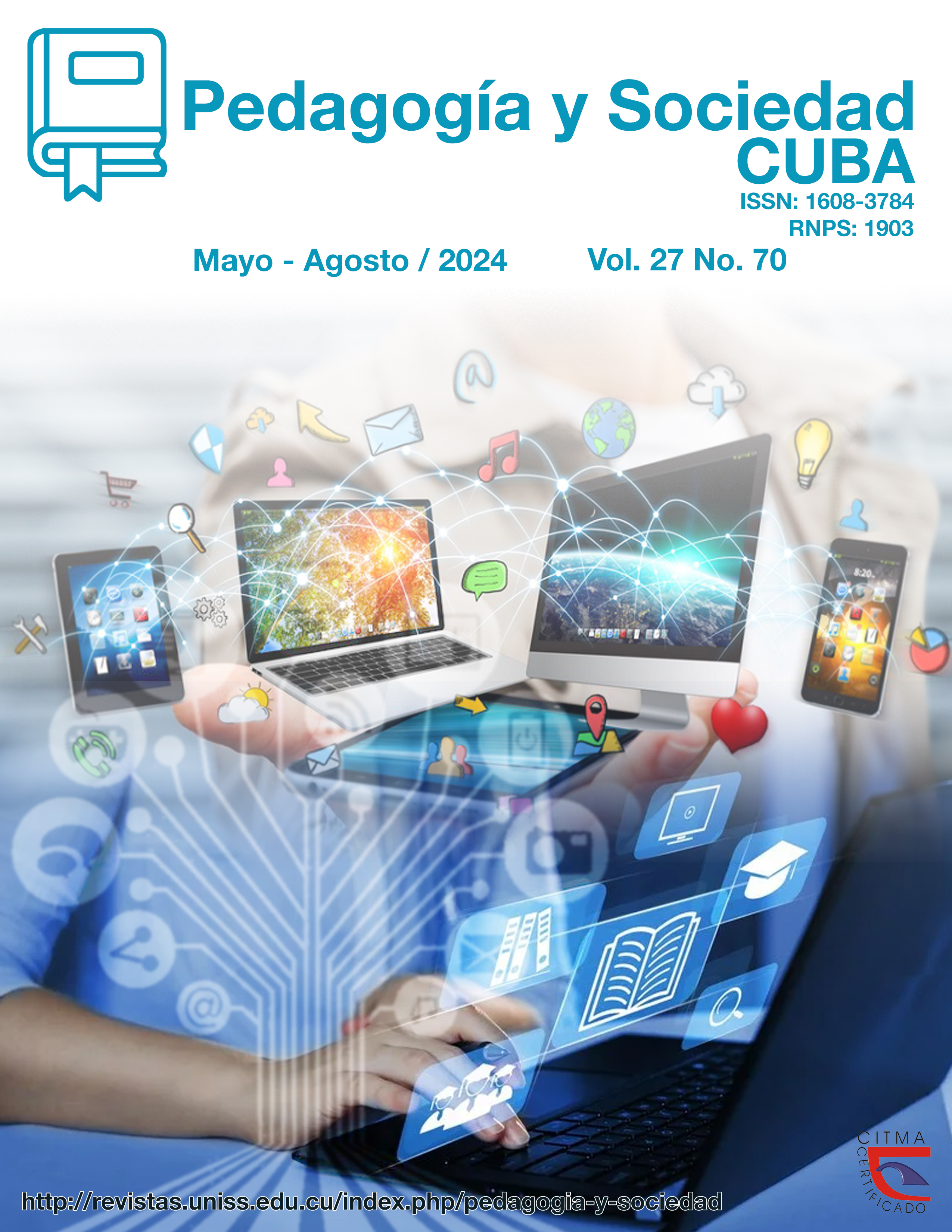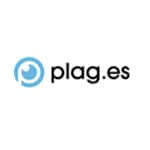The creativity of the educational psychopedagogist for educational guidance: contemporary haste.
Abstract
Introduction: Developing the psychopedagogist's creativity for educational guidance constitutes a maxim for the current Cuban school, when assuming the challenges of contemporaneity in the educational process. The diagnosis carried out as a task of the research project; "Creative strategies and techniques for the improvement of educational work", found the scarce development of novel actions offered by educational psychologists for the efficient solution of guidance needs and the limited autonomy they show in the search for proposals for change and modeling of solutions.
Objective: To propose a model that favors the development of the educational psychopedagogist's creativity for educational guidance.
Methods: Participatory action research, in-depth sessions, documentary analysis, scientific observation, interviews and methodological triangulation.
Results: A model of development of the psychopedagogist's creativity for educational guidance, characterized by the unity of external and internal elements in the development of creativity, the stimulation of motivation and reinforcement of knowledge, self-knowledge and self-valuation of psychopedagogists and the mobilization of originality, flexibility and cognitive independence.
Conclusions: The model involves an intuitive approach to the ideal in the development of the psychopedagogist's creativity for educational guidance.
Downloads
References
Aguaded Gómez, M. C., Rodríguez-Hernández, M., Sánchez-Martínez, M. D. y Díaz-Pérez, P. (2020). Los orientadores educativos: unificación de su práctica mediante un modelo de orientación adaptado al siglo XXI. Revista de Orientación Educativa. AOSMA, (29), 86-94. https://aosma.es/wordpress/wp-content/uploads/2020/11/AOSMA-29_FINAL.pdf
Álvarez-Mayáns, L., Pérez-Almaguer, R. y Ramírez-Pérez, A. M. (2018). La formación del psicopedagogo para la orientación grupal: reflexiones desde la práctica para la transformación. Luz, 17(1), 74-82. https://luz.uho.edu.cu/index.php/luz/article/view/868/818
Borges Gutiérrez, H. A. (2019). El desarrollo del modo de actuación creativo del docente de educación artística desde los elementos identitarios del arte local [Tesis de Doctorado, Universidad de Sancti Spíritus, Cuba]. https://dspace.uniss.edu.cu/bitstream/handle/123456789/7354/H%c3%89CTOR%20ANIER%20BORGES%20GUTIERREZ%20OK.pdf?sequence=1&isAllowed=y
Concepción Rodríguez, M. L., Remedios González, J. M. y Hernández Mayea, T. (2017). Barreras asociadas a la creatividad de los docentes: una propuesta de solución. Pedagogía y Sociedad, 20(49), 48-65. https://revistas.uniss.edu.cu/index.php/pedagogia-y-sociedad/article/view/516/447
De Armas Ramírez, N. (2011). Los resultados científicos como aportes de la investigación educativa. En N. De Armas Ramírez y A. Valle Lima, Resultados científicos en la investigación educativa (pp. 1-7). Pueblo y Educación.
Díaz Garriz, D. R., Cárdenas Martínez, J. R. y Vazquez Quintana, L. C. (2020). Rol del licenciado en pedagogía-psicología en el cumplimiento de sus funciones. Aportes de la didáctica general. Universidad & Ciencia, 9(1), 84-95. https://revistas.unica.cu/index.php/uciencia/article/view/1436/2307
González-Cuesta, R. M., Hernández-Hernández, J. R., Martín-González, D. y Suárez-Deán, S. (2021). El desempeño profesional del psicopedagogo en la orientación educativa. Aciertos y desaciertos. Atenas. Revista Científico Pedagógica, 3(55), 100-116. https://atenas.umcc.cu/index.php/atenas/article/view/58/90
Kemmis, S. y Mc Taggart, R. (1997). Cómo planificar la investigación-acción. Laertes.
Carvalho, T. C. M., Fleith, D. S. y Almeida, L. S. (2021). Desarrollo del pensamiento creativo en el ámbito educativo. Revista Latinoamericana de Estudios Educativos, 17(1), 164-187. https://revistasojs.ucaldas.edu.co/index.php/latinoamericana/article/view/4272/3929
Rivas Avila, Y. J., Mosqueda Padrón, L. y Martínez Vega, A. (2020). Orientación educativa universitaria. Visión teórica-conceptual. Opuntia Brava, XIII, 1-13. https://www.researchgate.net/publication/339149438_ORIENTACION_EDUCATIVA_UNIVERSITARIA_VISION_TEORICA-CONCEPTUAL_GUIDANCE_UNIVERSITY_THEORETIC_CONCEPTUAL_VISION
Rodríguez Boggia, D. Ó. (2012). El portafolio del psicopedagogo: perfil y competencias. Revista Infancias Imágenes, 11(2), 79-83. https://revistas.udistrital.edu.co/index.php/infancias/article/view/5629/7159
Unesco. (2015). Objetivos de Desarrollo Sostenible (ODS4): Educación. https://es.unesco.org/gem-report/node/1346
Vallejo López, A. B., Daher Nader, J. y Rincón Rios, T. (2020). Investigación y creatividad para el desarrollo de competencias científicas en estudiantes universitarios de la salud. Educación Médica Superior, 34(3), e1606. https://www.medigraphic.com/pdfs/educacion/cem-2020/cem203j.pdf
Downloads
Published
Versions
How to Cite
Issue
Section
License
Copyright (c) 2024 Pedagogía y Sociedad

This work is licensed under a Creative Commons Attribution-NonCommercial-NoDerivatives 4.0 International License.











